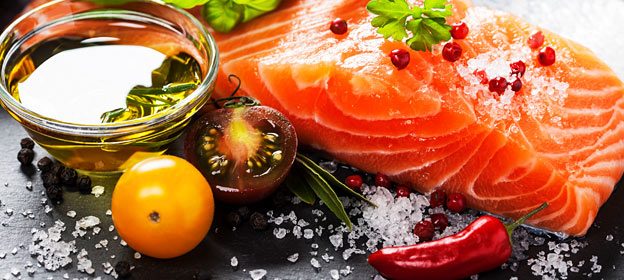 Which is a healthier way of eating – low fat or low carb? Several recent studies have been published addressing this question, and the answer seems to be that lower carbohydrate diets, with moderate amounts of fat (yes, even some saturated fat), produce healthier cholesterol levels, reduced markers of inflammation, improved cognitive function, and greater weight loss.
Which is a healthier way of eating – low fat or low carb? Several recent studies have been published addressing this question, and the answer seems to be that lower carbohydrate diets, with moderate amounts of fat (yes, even some saturated fat), produce healthier cholesterol levels, reduced markers of inflammation, improved cognitive function, and greater weight loss.
My own experience in this regard may be helpful to consider.
25 year-old Dr. Charles used to work out 4 days a week, run about 10-15 miles a week, and eat very little fat but very high carbohydrates. The orthodoxy at that time was that a low fat diet was the best. I rarely ate any fat, forgot about things like nuts and avocados. I drank 1% milk fat. In an effort to gain weight, I would eat cereal or spaghetti before bed most nights of the week.
Approximate Stats:
- Weight = 170
- Total cholesterol 165
- Good HDL only 38 (normal >40, optimal >60)
- Bad LDL 103
- Triglycerides 100
- Energy levels fairly tired after most meals
- Moderate adult acne
But then into my 30’s I started to incorporate more aspects of the Mediterranean diet, cooking with generous olive oil, eating nuts most days of the week, more fatty fish and shellfish, grass fed beef or bison, drinking whole milk and more wine with dinner, and substituting Greek yogurt and eggs (time permitting) for morning cereal. I stopped carb loading at night and figured I would just accept my thin body instead of trying to bulk up. I do eat carbs, maybe the equivalent of 2 servings a day, preferably whole grains or more exotic stuff like quinoa, spelt, and plant sources of starch like corn, squash, bean, sweet potatoes. Fruit, vegetables, berries. Unfortunately I found less time to exercise or run, and my time spent exercising was cut in half or more, with little to no running.
New stats on lower carb, higher fat, less active lifestyle:
- Weight = 160
- Total cholesterol 199
- Good HDL 60 (most positive change)
- Bad LDL 128
- Triglycerides 75
- Energy levels improved after most meals
- Minimal adult acne
Eating more fat and losing weight?
Eating more fat, albeit mostly unsaturated healthy fats, and eating much less carbs produced 10 pounds of weight loss, boosted my HDL cholesterol over 20 points, and provided me with a subjective sense of more energy, and possibly cleared up some acne. This is consistent with the recent studies you may be hearing or reading about.
Fat is not the enemy. Even saturated fat in moderation seems to be ok. The French have known this for centuries, as have Mediterranean cuisines.
I believe in eating low carb/low sugar and low total calories, with very little processed foods from the middle aisles of the grocery store. I believe in drinking grass fed whole milk, limiting cereals in the morning in favor of eggs, whole grain toast with almond butter slathered on top, or full fat yogurt with berries. I believe in a glass of wine or beer with most dinners, because it relaxes me and my vascular tone as well. I snack on nuts, and eat saturated fats like cheese and animal fat in moderation. I pretty much never drink soda or juice, but I do like ice cream maybe once a week.
A few years ago there was a potential block buster drug being developed to boost people’s HDL cholesterol levels. This was considered the holy grail of cardiovascular risk reduction, as most studies consistently show a reduced risk of heart attack and stroke with good, high HDL levels. Unfortunately the clinical trials were halted after it became apparent that this artificial HDL engineering with a pill actually increased mortality rates.
Fortunately it seems we can turn things around with diet, perhaps as I was able to do.
Now I have to return to my very stressful job, which is going to give me a heart attack anyway.


Good to see you back. And thank you for this post. The nutritionist provided by my insurance company keeps insisting that I need to eat a diet that consists of whole grains and very little fat. I keep pointing out that my cholesterol levels are better than hers.